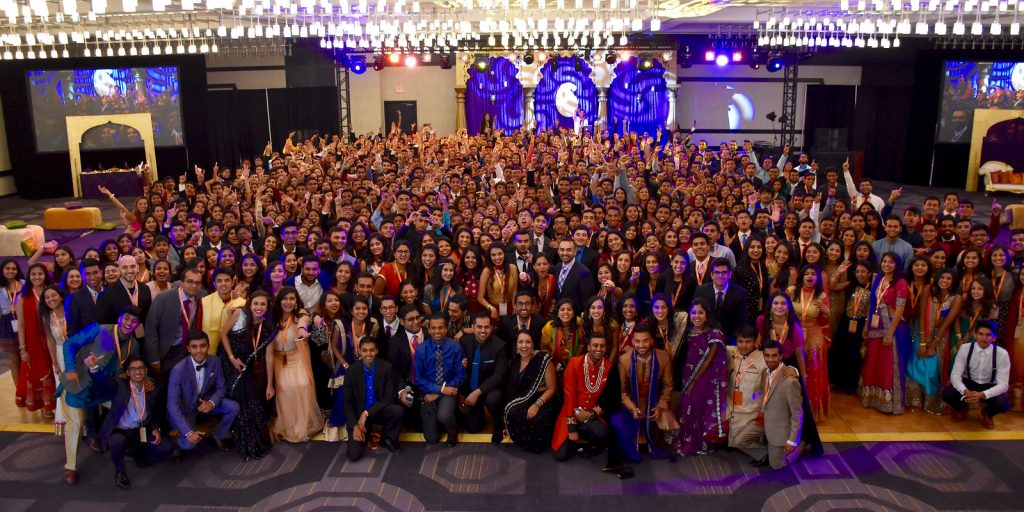
by Rachna Shah – Follow @browngirlmag
In my mother’s hometown, the population was 0.28 percent Jain. In my father’s, it was 2.45 percent.
These percentages may seem small, but the way that my mother and father describe their childhoods makes it seem as though they grew up only among Jains, Jain temples, and Jain ideals. So when my parents immigrated to the US, they were determined to realize their visions of the American Dream: be who you want to be, but don’t forget your roots.
Yet it was only at the age of 5 that I began attending Jain Pathshala (Sunday School) classes. I recall lying down on Saturday night, trying to memorize the names of the 24 Tirthankaras. I remembered them for the exam the following day yet by the start of the school week on Monday, I had forgotten them.
It was only halfway through high school that I realized the uselessness of approaching knowledge through a lens of memorization. There is meaning behind what we learn in the classroom, meaning with so much potential to guide us through life and answering its endless questions. What causes suffering? How should we respond to conflict?
[Read More: #WeDoBelongHere: Why I Celebrate Both Sides of My Culture]
Each culture has its own answers to these questions, but none of the ones we learned in AP World History resounded with me. As a result, I began retracing my steps. I googled Jainism 101, and through online searches and scripture readings, I found the truths and principles I hadn’t known I had been looking for. Every being has potential. You’re responsible for your actions and the consequences of your actions. We are not perfect, but we can achieve perfection through discipline. The main pillars of Jainism, such as non-violence, are not unrealistic. It’s not naive to want to live in a world where murders, gun violence, and corruption aren’t stubbornly high. It’s not naive to want to live in a world where partisan acrimony disrupts friendships and families and communities. But it is naive to just want it. We have to do something about it.
To me, being a Jain-American means actively applying Jain principles to community and global problems. Nonviolence includes being compassionate with our communities and ourselves. Non-absolutism relates that reality is complex and that no one story or perspective can be the truth. Non-possessiveness can help us to let go of the possessions and situations that are holding us back. Introspection into these principles requires thinking about each of our actions’ impact on our self, our family, our community, and our world.
It also means that I’m not alone. There’s a wide and welcoming community of young Jains throughout North America. The concerns and questions that we face and the friendships that we have the potential to form are all there. Being a Jain-American has led me to find interests in fields I had never considered, such as animal rights and viewpoint diversity and educational equity. The future of being a Jain-American is as bright as the peace we seek to grow and reap in the world.
 Rachna Shah is an undergraduate student at Dartmouth College studying at the intersection of economics and development. She is passionate about improving the experiences people have with their voices and the voices of others through her work with literary and political magazines and youth organizations. As Director of Publications at Young Jains of America, she directs Young Minds, a quarterly publication of YJA that features articles, recipes, educational information, regional updates and more. It provides a platform for Jain youth across the country to share and learn from each others’ perspectives. Find her at @rachna_rshah on Twitter and Instagram.
Rachna Shah is an undergraduate student at Dartmouth College studying at the intersection of economics and development. She is passionate about improving the experiences people have with their voices and the voices of others through her work with literary and political magazines and youth organizations. As Director of Publications at Young Jains of America, she directs Young Minds, a quarterly publication of YJA that features articles, recipes, educational information, regional updates and more. It provides a platform for Jain youth across the country to share and learn from each others’ perspectives. Find her at @rachna_rshah on Twitter and Instagram.




